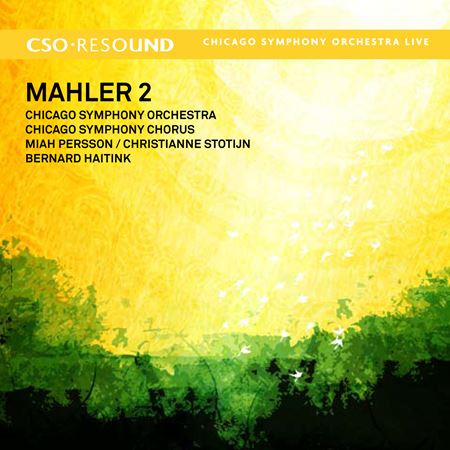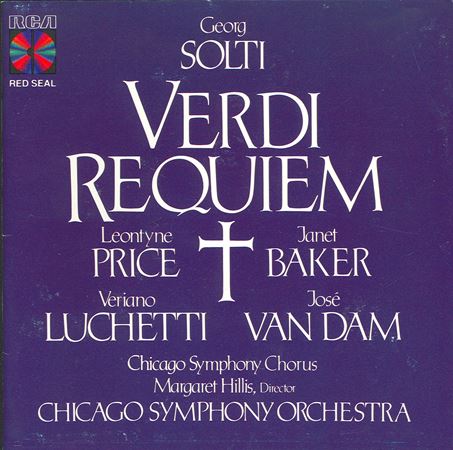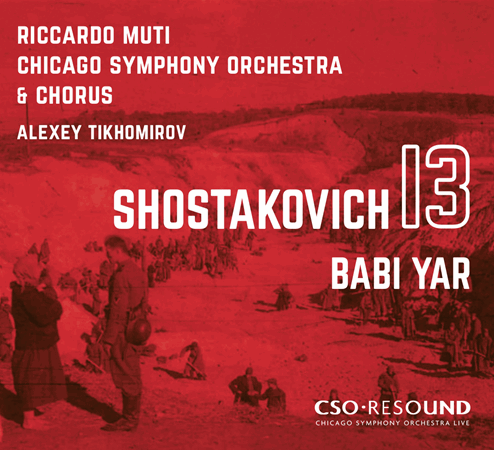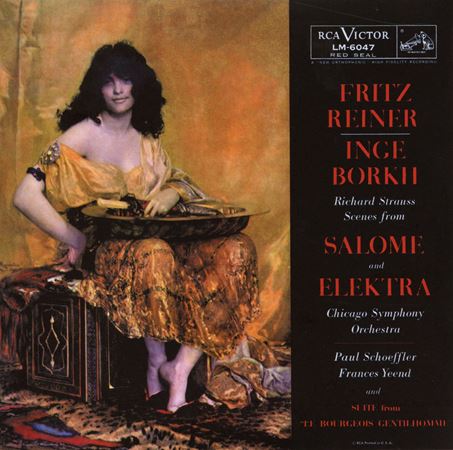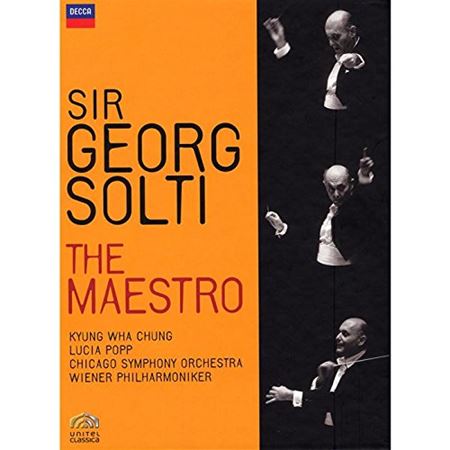Ariana Strahl is donor engagement manager for the Chicago Symphony Orchestra Association.
Will Brinkerhoff Photography
The Chicago Symphony Orchestra’s commercial recording legacy began on May 1, 1916, when second music director Frederick Stock led the Wedding March from Mendelssohn’s A Midsummer Night’s Dream for the Columbia Graphophone Company. The Orchestra has since amassed an extraordinary, award-winning discography on a number of labels—including Angel, CBS, Deutsche Grammophon, Erato, London/Decca, RCA, Sony, Teldec, Victor, and others—continuing with releases on the in-house label CSO Resound under tenth music director Riccardo Muti. For My Favorite CSO, we asked members of the Chicago Symphony family for their favorite recordings (and a few honorable mentions) from the Orchestra’s discography.
Soprano and arts advocate Ariana Strahl supports the work of the League of the Chicago Symphony Orchestra Association as a donor engagement manager. She also has performed across the United States and Europe, including a two-year residency at the Komische Oper Berlin, where she brought over twenty roles to the stage. Strahl now specializes in both art song and orchestral works, and she is an ardent new-music advocate. Most recently, she co-commissioned a song cycle with the Chicago Composers’ Orchestra: Let Me Sing, written by Eric Malmquist, a setting of three poems by American activist women for soprano and large ensemble. In the summer of 2020, Strahl curated Chicago Back Porch Concert Series.
MAHLER Symphony No. 2 in C Minor (Resurrection)
Recorded in Orchestra Hall in 2008 for CSO Resound
Bernard Haitink conductor
Miah Persson soprano
Christianne Stotjin mezzo-soprano
Chicago Symphony Chorus
Duain Wolfe director
"The Resurrection Symphony has all of the pieces that make up the perfect musical experience: large-scale drama, stunning text, and both delicacy and grandeur that play off each other well. Mahler frequently quotes his own songs within larger orchestral pieces, and you can hear this clearly here, as he quotes a song from Des Knaben Wunderhorn about Saint Anthony, who, finding his parish empty, preaches to a river full of fish.
"The fourth movement always has an incredible low center of gravity, and this interpretation only emphasizes that. The mezzo-soprano voice and the various instruments it ‘converses’ with are just stunning. The text, also from Des Knaben Wunderhorn—“der Mensch liegt in größter Not (Man is in great danger)—seems appropriate these days. The finale is broad, gigantic, and filled with transcendent hope, with everyone onstage involved. This too, feels appropriate in this time."
VERDI Messa da Requiem
Recorded in Medinah Temple in 1977 for RCA
Sir Georg Solti conductor
Leontyne Price soprano
Janet Baker mezzo-soprano
Veriano Luchetti tenor
José van Dam bass-baritone
Chicago Symphony Chorus
Margaret Hillis director
1977 Grammy Award for Best Choral Performance
“To me, this is the most perfect piece of music in the Western canon—it is without equal. I was lucky enough to perform the soprano solo once, and I certainly hope it isn’t the last.
"This interpretation is incredible, and Leontyne Price is truly unmatched. The ’Libera me’ is perfect: raw and terrifying and glorious, and the conversation between soloist, orchestra, and chorus is both precise and compelling. The ’Agnus Dei’ with Price and Dame Janet Baker is also fantastic. These soloists are both superstars in their own right, and they capture a declamatory style, in octaves no less, in which neither gives up any of their individuality. It’s glorious. The ’Ingemisco’ is also so beautiful and delicate, especially the oboe solo. Each section of this piece spans such a broad emotional range, and requires so much dexterity from all musicians involved."
SHOSTAKOVICH Symphony No. 13 in B-flat Minor, Op. 114 (Babi Yar)
Recorded in Orchestra Hall in 2018 for CSO Resound
Riccardo Muti conductor
Alexey Tikhomirov bass
Men of the Chicago Symphony Chorus
Duain Wolfe director
2020 Grammy Award for Best Engineered Recording–Classical
"By the time I’m writing this, this recording has received its well-deserved accolades at this year’s Grammy Awards ceremony. But before the recording was released, the week of concerts was its own event. It’s hard to describe how excited a particular corner of the vocal music community of Chicago was about this piece—I know several people who attended every night. Rarely performed works offer a unique chance to bring members of a local music community together in a way that is differently urgent. This might be the only chance to hear a piece live!
“This symphony was new to me when the CSO performed it, as I was also preparing a different Shostakovich piece myself. His penchant for surprising, sometimes wandering harmonics can cause the mood to turn on a dime, and keeps the listener engaged in a different way than works that follow more predictable forms. The layered text is explicitly political, and the recounting of the premiere is a reminder of the potential this art form has, not only in the performance of well-loved pieces but also a response to happenings in the current climate.”
STRAUSS Selections from Elektra, Op. 58, and Salome, Op. 54; Suite from Le bourgeois gentilhomme, Op. 60
Recorded in Orchestra Hall in 1955 and 1956 for RCA
Fritz Reiner conductor
Inge Borkh soprano
Frances Yeend soprano
Paul Schöffler baritone
Chicago Lyric Theatre Chorus
"Both of these monologues come from two of Strauss’s most extreme operas, and both are some of the most exciting orchestral and vocal writing in all of opera, in my estimation. In both cases, the characters are fully committed—to their truths and senses of power. Inge Borkh was someone who in some ways shaped the style in which these roles are still performed today—with profound magnetism and gigantic presence onstage. The final scene in Salome can also be very disconcerting for an audience member, depending on the staging. It’s meant to leave one ill at ease."
STRAUSS Four Last Songs
Recorded in Orchestra Hall in 1977 by Unitel, released by London
Sir Georg Solti conductor
Lucia Popp soprano
"This is a bucket-list item for many sopranos, with some of the richest vocal writing in the entire genre. The violin solo in ’Beim Schlafengehen,’ the horn section throughout, and Lucia Popp’s brilliance, especially in the first movement, is all part of an interpretation that’s very agile and also entirely luxurious. Strauss quotes himself as well at the end of the last movement, from his tone poem Death and Transfiguration—the finality at the dusk of life, as it were."
A few honorable mentions:
- BARTÓK Bluebeard’s Castle with Pierre Boulez for Deutsche Grammophon (1993)
- MAHLER Das Lied von der Erde with Daniel Barenboim for Erato (1991)
- VERDI Otello with Riccardo Muti for CSO Resound (2011)
- BEETHOVEN Fidelio, Op. 72 with Sir Georg Solti for London (1979)
- WAGNER Selections from Die Walküre, Siegfried, and Götterdämmerung with Daniel Barenboim for Erato (1991)
- BERG Suite from Lulu with Pierre Boulez for EuroArts (2000) (video)
- FALLA The Three–Cornered Hat with Daniel Barenboim for Teldec (1997)
MFC-024
